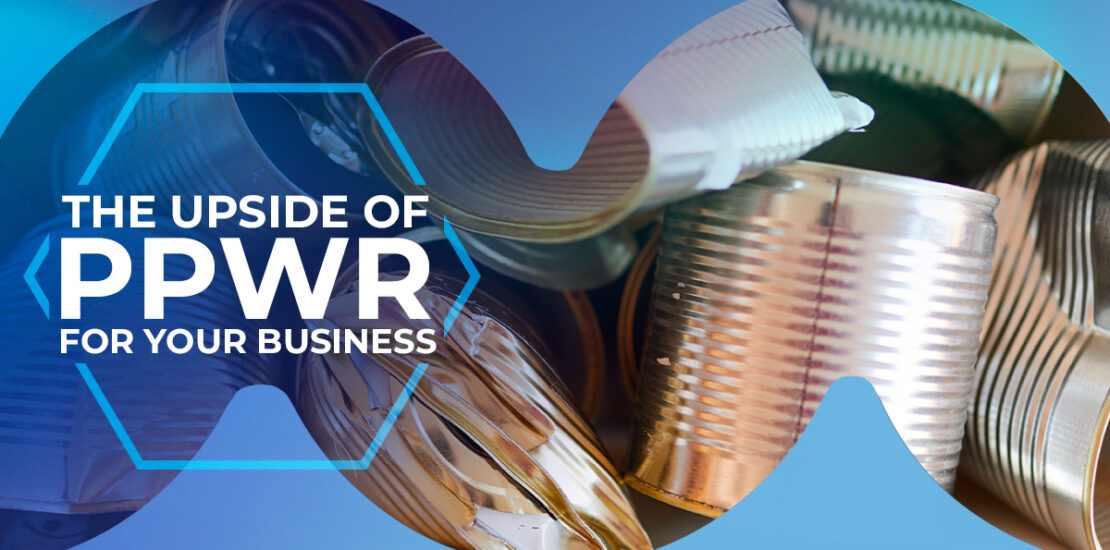PPWR regulation: the upside of the new European Packaging Regulation
- 11 February 2025
- Posted by: Annalisa
- Category: News

The new European packaging regulation (PPWR) marked the start of a new phase for the industry, which is currently going through substantial changes in each and everyone of their operational activities.
Although the timing of the implementation of the new directives doesn’t leave much room for manoeuvre for industry operators, it’s important to mention that for some materials the process will be easier than for others. This is precisely the case for the aluminium packaging industry, a material for which recycling processes are already widespread – albeit not at full capacity.
In addition, it’s important to note that the new regulation could bring significant benefits regardless of the type of material used, both from an economic and a social perspective.
What is the packaging and packaging waste regulation (PPWR)?
The Packaging and Packaging Waste Regulation (PPWR) is a new European Commission regulation aimed at standardising and optimising the management of packaging materials. The document, which was approved by the European Parliament and the European Commission at the end of 2024, also provides for the management of waste streams in order to reduce their environmental impact and promote recycling in a circular economy system.
The PPWR is part of a broader European movement to unify regulations across all EU member states and replaces the current legislation, now considered obsolete.
What changes for aluminium and metal packaging?
The introduction of the new regulation will also have a significant impact on the production and disposal of aluminium and metal packaging. According to the guidelines, in fact, at least 60% of aluminium packaging and 80% of metal packaging will have to be recycled by 2030. The document also promotes the use of recycled materials for the production of new packaging, although no minimum quantity of recycled raw material per container produced is specified.
It is not to be ruled out, however, that the regulation will be supplemented with further details on how recycled materials can be reused.
When does it become effective?
The new regulation became effective on February 11th 2025, when all members of the EU had to start adapting to the new directives in order to meet the timelines specified within the document.
All companies involved have been granted a transitional period during which they have the opportunity to cope with some of the more impactful changes such as the replacement of materials that are non-compliant with the directives or the collection and recycling of packaging.
What are the benefits?
Although the introduction of the PPWR poses a series of challenges for the companies involved, it will have very positive consequences for those who make the best use of the guidance provided in the document.
The main advantages for virtuous companies will be:
- improved corporate reputation resulting from the growing interest and awareness of consumers towards environmental issues;
- reduction of costs and waste resulting from the use of fewer raw materials for the production of packaging, which will consequently be lighter and more adaptable to each product – thus also favouring its transport and storage;
- access to incentives and funding from the implementation of sustainable strategies, which are increasingly important for EU countries in the fulfilment of the Green Deal;
- greater consistency in the management of packaging within the European Union, a key aspect for companies operating in several states and which up to now have had to deal with often conflicting directives;
- increased transparency and traceability in resource management as with the introduction of digital and technological systems to monitor and track packaging, companies will be able to improve the efficiency and overall management of material flows;
- simplifying processes by standardising packaging and introducing a circular economy, aimed at reusing materials and products beyond their usual life cycle.
Considering all the above, it is clear that the introduction of the new Packaging Regulation (PPWR) can change the dynamics within the market by favouring mostly positive developments in terms of image, operational efficiency, access to incentives and competitiveness for those who will be able to make the most out of the resources at their disposal.
A focus on detail and the various developments in the aluminium and metal packaging market has made Euro Tecno Tool an important reference point for Italian and European companies for over 30 years. Our specialised team is able to offer innovative solutions and equipment for food, general line, packaging caps and aerosol equipment.
Contact us to find out how we can help you.


